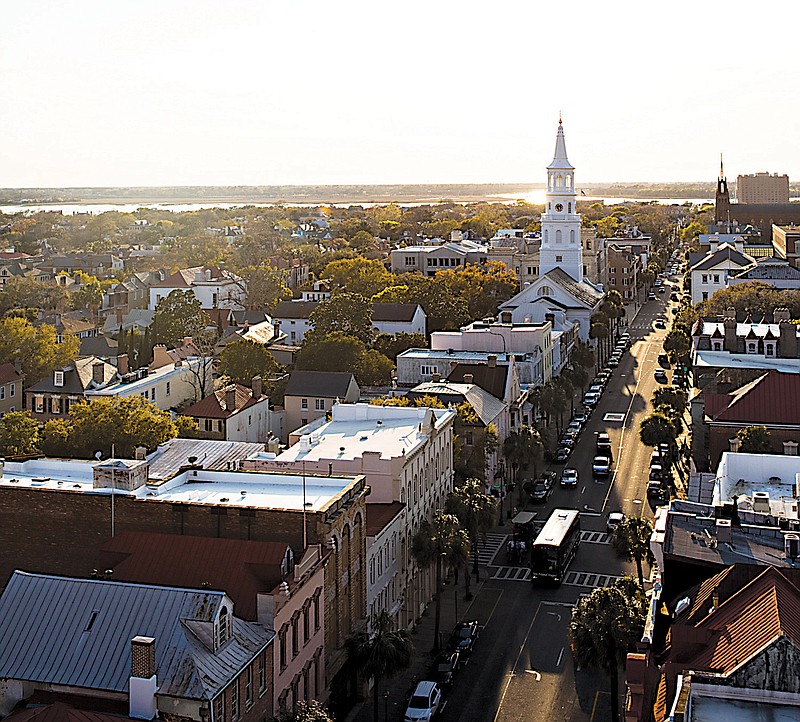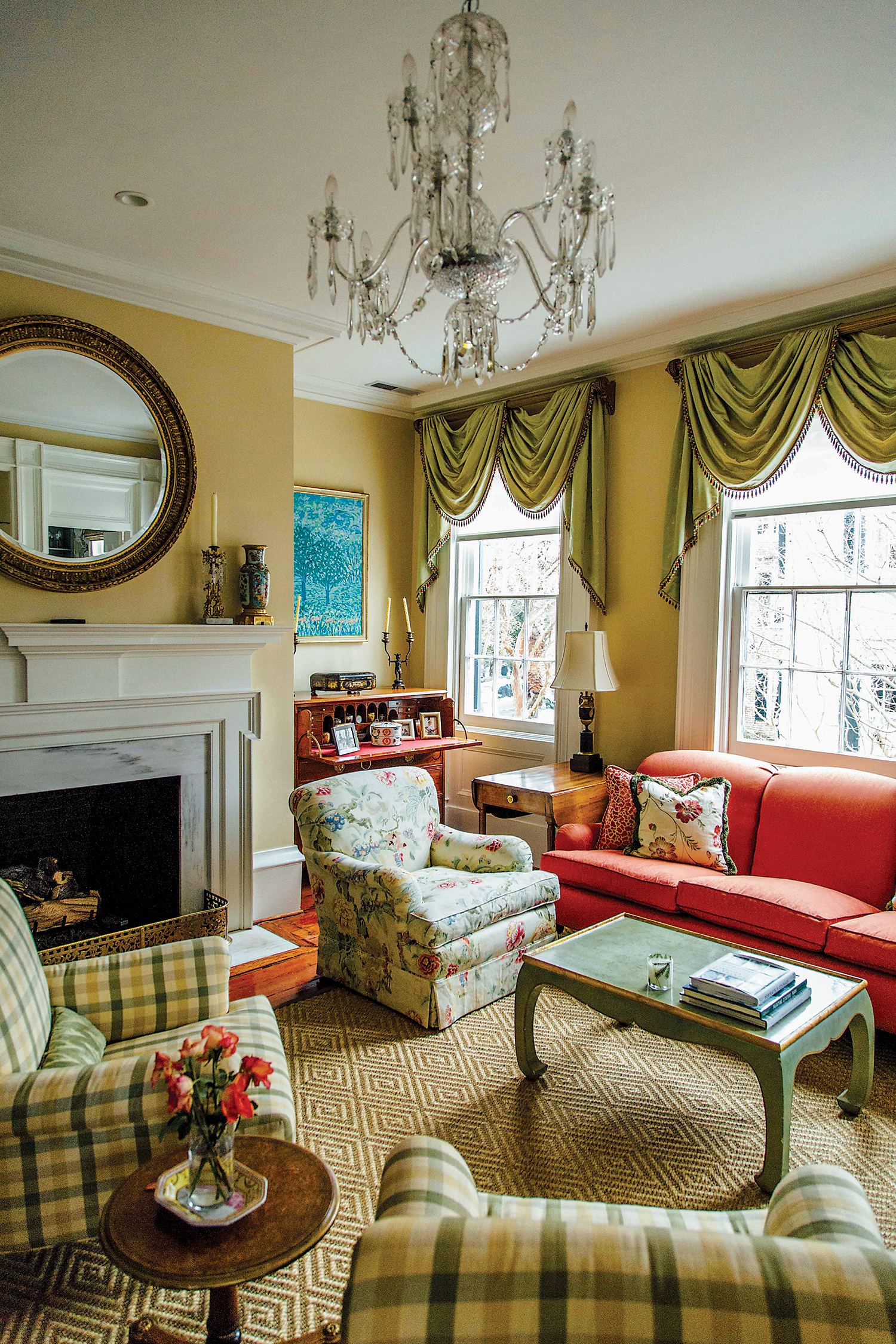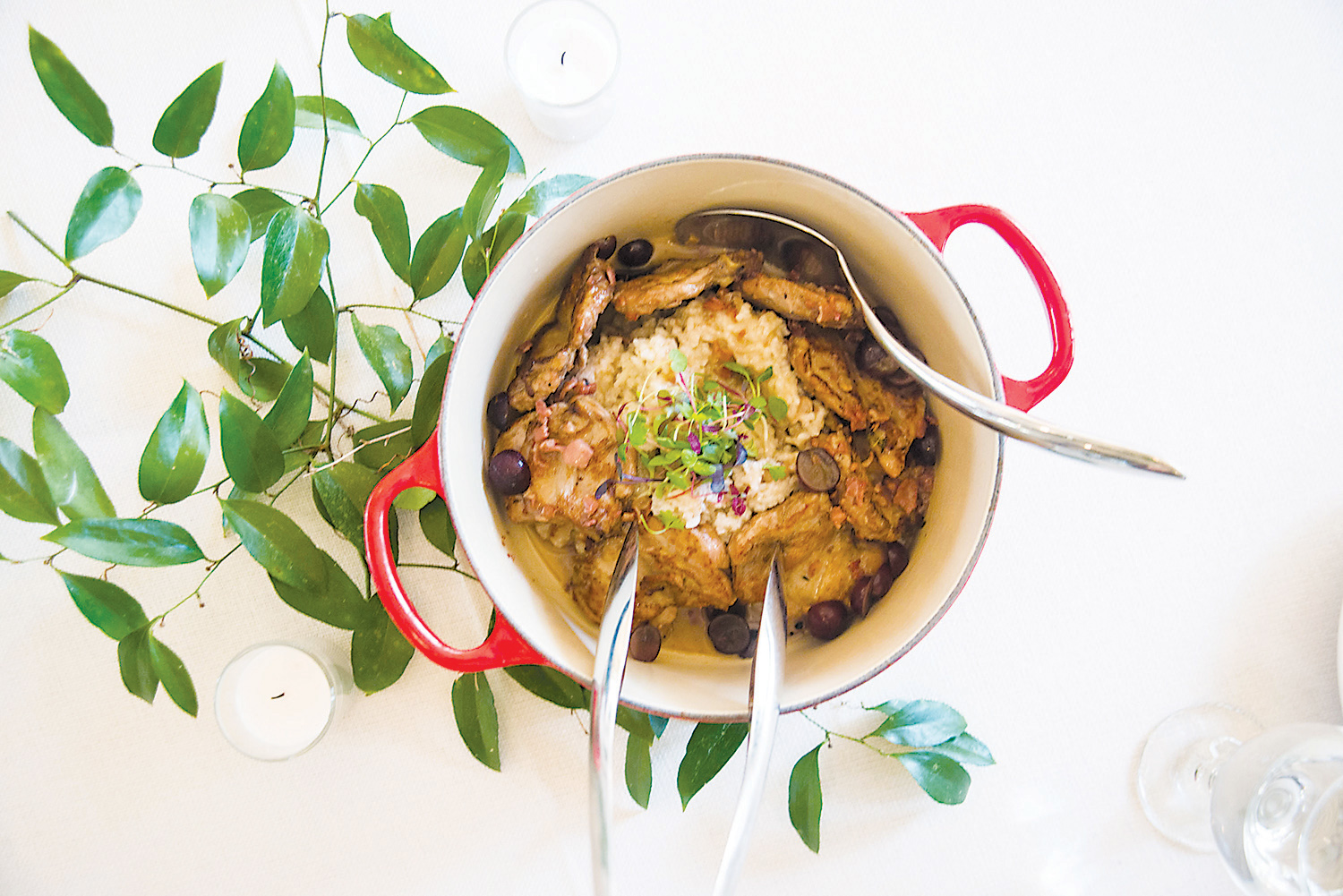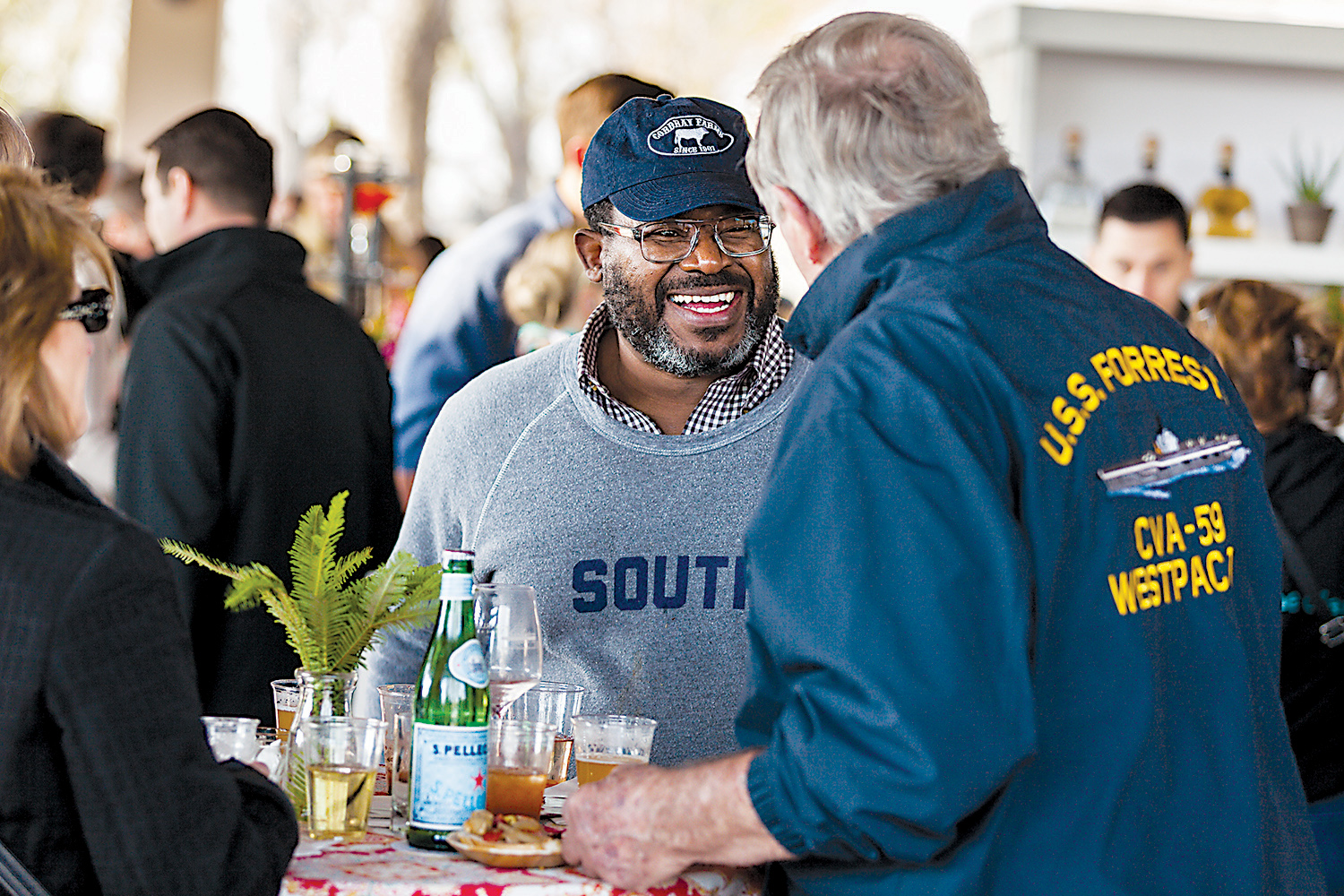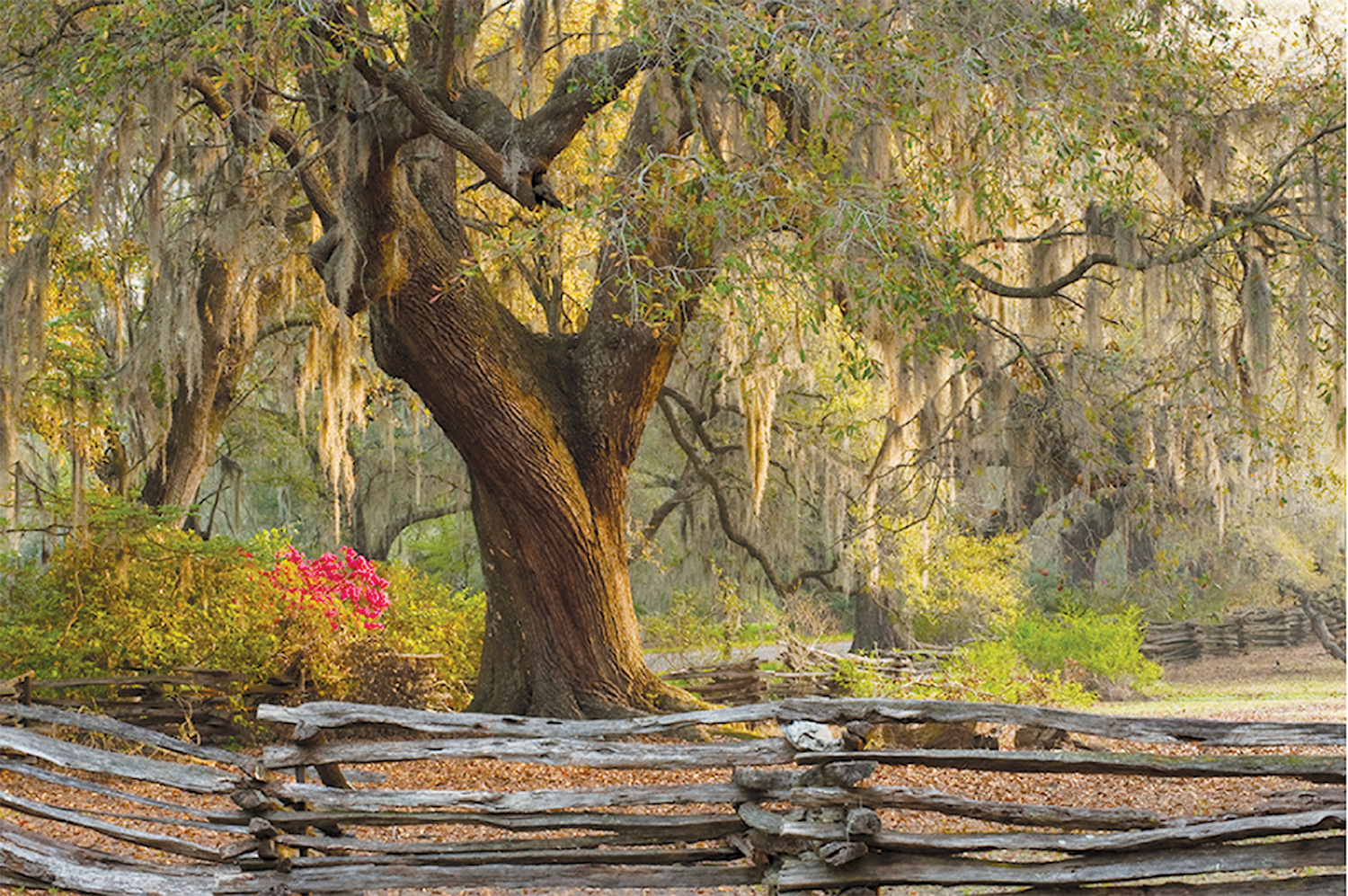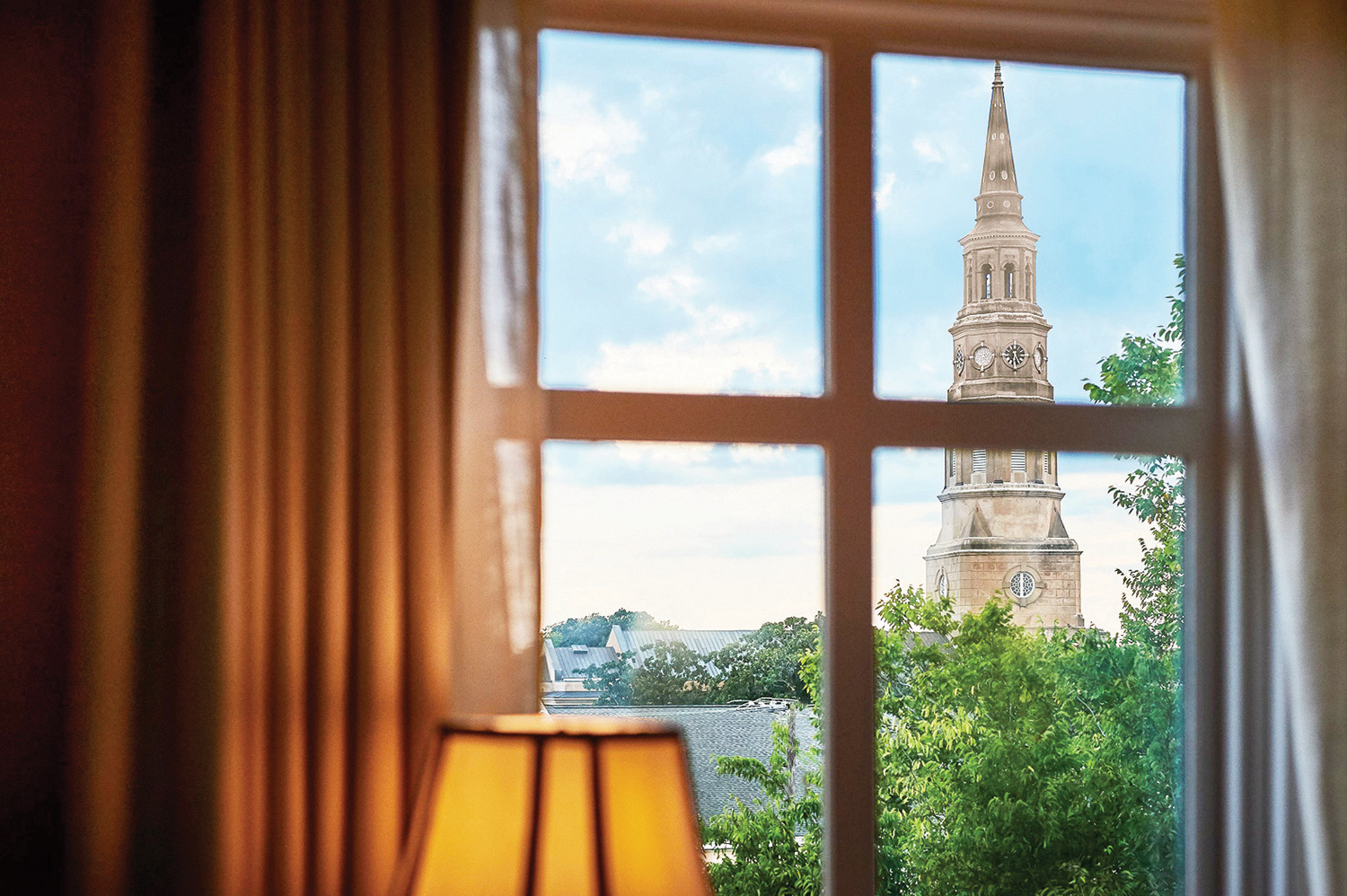When I was in eighth grade, I got my first taste of true Southern culture. My family had recently moved to Florida and my parents were on a kick of absorbing Southern history, so naturally we visited Charleston.
As a California girl, Charleston was exactly how I'd imagined the South to be, and I was smitten. The tasty cuisine, quintessential Southern charm, and Colonial homes with grand front porches scored a spot in my heart.
Turns out a couple of Charleston's big events are coming up, making it a great time to (re)visit.
83rd House and Garden Tour
March 22-24
Founded in 1922, the Garden Club of Charleston is one of the oldest garden clubs in the country. The group holds one fundraising event every year: the House and Garden Tour, which offers an inside look at some of Charleston's stunning homes. As the oldest city in South Carolina, founded in 1670, Charleston shows its age with an array of architectural styles, including Victorian, Colonial, Italianate and the Charleston single house, to name a few. The House and Garden Tour gives visitors an inside look at how style and architecture changed, and how the city embraced new design.
This year, the two-day tour is kicking off with its first-ever preview party, being held March 22. Attendees will be able to enjoy food and drinks, a silent auction and watch floral designers create intricate centerpieces throughout the night.
Almost all homes on the weekend tour are privately owned and offer a unique historical context. Leading up to the event, historians visit the homes to learn more about the architecture and history. Garden Club members are then taught extensively about the homes and stationed at the various stops, so that as guests tour at their leisure, someone is always on-hand to give background about the art, architecture and history of the house.
A map of all the homes and gardens is downloadable for smartphones, allowing visitors to explore at their pace. The list of homes is different for each day, with tours running from 1-5 p.m. Saturday and Sunday. Tickets for the tour and preview party are available at thegardenclubofcharleston.org.
Charleston Wine + Food Feb. 28-March 4In 2006, Charleston foodies cooked up the idea to celebrate the city's rich flavors by rallying the best chefs and drink experts to help showcase Charleston's cultural roots. The 13th season of Charleston Wine + Food concludes March 4, so there's just enough time for a weekend trip. The biggest events are a honky tonk party Friday night, and the Culinary Village on Saturday - the feature event of the weekend. The Village is divided into neighborhoods, all designed to have their own flavor and personality which will be showcased by more than 100 vendors.
Other events include hands-on classes in which drink experts and acclaimed chefs will teach guests how to mix craft cocktails or cook a tasty dish. There are also dinners, brunches and lunches all over the city, and music events that thoughtfully pair drinks and food. The list of events is enticing. Choosing between a multi-course dinner or a day-long food and drink tasting experience seems criminal.
Tickets can be purchased for a single event or as package deals at charlestonwineandfood.com. Before booking a place to stay, check out the event's list of partner hotels offering lower rates, which can also be found on CHSWFF's website.
Where Else to Eat
Magnolias offers an upscale take on traditional Southern food, whether for lunch or dinner. Locals know it by name - the restaurant comes highly recommended by the concierge at The Mills House Wyndham Grand - and tourists might know the award-winning cuisine from mentions on Food Network and by The Wall Street Journal. It's recommended to make a reservation, but not impossible to get in without one.
High Cotton, also recommended by The Mills House concierge, is open nightly for dinner. Charleston's rich farmlands and proximity to the water mean its signature Lowcountry cuisine often features seafood, red meat and game dishes, which are exactly what High Cotton cooks up. In addition to its nightly fare, High Cotton offers brunch on Saturdays and Sundays, making it a great place to grab a bite before the House and Garden Tour starts at 1 p.m.
Off the beaten path, there's a delicious Thai restaurant that I ate at while visiting Charleston, recommended by some family friends. Basil Thai offers a break from the traditional Southern dishes. The creamy, perfectly tangy and refreshing coconut soup is the best I've tried to date. The sauce for the pad see ew noodles was irresistible, and the beef in the fried rice was tender and full of flavor. To this day, their dishes stand as my baseline comparison for all other Thai restaurants.
Fort Sumter stands as one of the most significant grounds from the American Civil War. The first shots of the war - fired here - issued in America's bloodiest conflict. Guided tours are offered daily, and visitors can expect to learn about how and why the war started and the crucial role Fort Sumter played.
Over 200 years in operation, the Charleston City Market has solidified its position as one of the oldest markets in the country. It has been around since 1807, when stalls were rented for $1. The brick building has withstood the Civil War and natural disasters including tornadoes and fires, and the market managed to survive a severe economic downturn in the late 1940s. It's the perfect place to meet local artisanal vendors and pick up a famous sweetgrass basket. The baskets, of African origin, were originally crafted to separate rice seeds from their hard, protective casings. The Lowcountry region surrounding Charleston was a major rice producer until the late 1800s.
Touring a plantation gives a different vantage for those interested in Charleston's history. The numerous plantations offer varying insights. With over three centuries of continuous cultivation, Boone Hall Plantation is one of the oldest working farms in the country. Originally, the farm produced cotton and pecans, but now grows strawberries, peaches, tomatoes and other produce dependent on the season. Magnolia Plantation and Gardens, opened to the public in 1870, is the oldest public garden in America, and has been named by Travel + Leisure as one of "America's Most Beautiful Gardens." The plantation itself, founded in 1676, has existed since before the American Revolution.
Where to StayBelmond Charleston Place, built in the 1600s, is located in the heart of downtown Charleston. The sweeping, Georgian, open-arm staircase is a grand example of the hotel's historical charm. The guest rooms and suites marry traditional Southern class and elegant modernity with finishes including plush, patterned sofas and marble-top vanities. The hotel is a prime location from which to take a stroll and enjoy the city's gems. After a day of exploring, unwind in the on-site spa or head up to the roof for a dip in the pool as the city glimmers below you.
The French Quarter Inn is billed as "the most award winning hotel in historic Charleston." Its elegant furnishings and boutique offerings (sign us up for the "immersive culinary experience") have wowed both TripAdvisor users and the pros at Conde Nast Traveler. Complimentary bike rental offers another way to explore the city and its hidden wonders. The hotel overlooks Charleston City Market, where you can buy handmade goods from local vendors. The daytime market operates year-round. On weekends from April to December, there is an additional nighttime market featuring more local vendors along with live entertainment.
